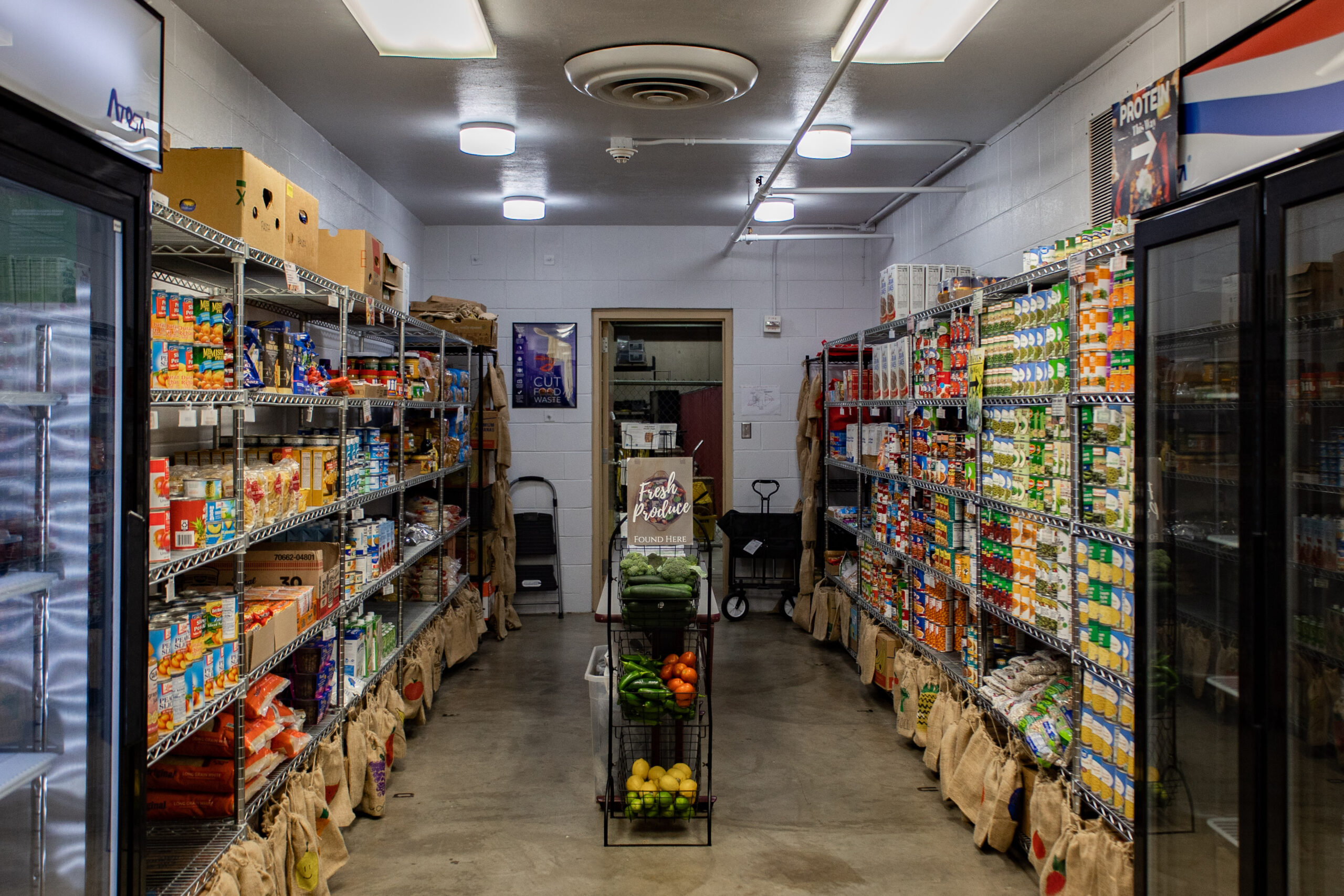Division of Student Affairs Receives $1.1 Million to Combat Food Insecurity
Funding from the university will help various organizations that work to ensure no one goes hungry at Texas A&M.
By Olivia Garza '23, Texas A&M Division of Student Affairs

12th Can Pantry
Student Affairs
According to a National Center for Education Statistics (NCES) at the U.S. Department of Education report, as many as one in three undergraduate students are experiencing food insecurity. That means that more than four million college students in the U.S. are food insecure. To combat this problem, the Division of Student Affairs will receive $1.1 million annually for the next 10 years to help improve food insecurity on campus. The funds will support a multitude of organizations on campus such as the 12th Can, Residence Life and Student Assistance Services.
Of the total, $125,000 will be allocated to 12th Can every year for 10 years. The 12th Can pantry is completely student led and serves Texas A&M students, staff and faculty. The pantry first opened in November of 2013 and has served thousands of Aggies over the past decade. The pantry operates on a client choice model which replicates a shopping experience for clients. Prepackaged bags are also offered for walk in clients. The funds will allow the 12th Can to purchase food to supplement donations, which will then allow the organization to expand its operating hours.
“The 12th Can is currently exploring ways to make our pantry more accessible to Aggies who may not be able to attend our current hours of operation,” Mazie Johnson, Executive Director of 12th Can said. “We plan to introduce a food locker system to provide prepackaged bags of food for clients who are unable to attend pantry openings. Additionally, our plan is to increase the number of clients in our pantry during operating hours. Through these changes, we aim to serve more Aggies."
The Pocket Pantry program, operated by Student Life, aims to provide temporary relief to Texas A&M students experiencing food insecurity by offering immediate access to non-perishable food and toiletries. Currently, there are 29 Pocket Pantry locations around campus. A $50,000 annual allocation to this program will ensure the pantries remain stocked year-round.
Student Life also distributes card swipes and meal plans to students in need. Card swipes help students who run out of swipes on their meal plan to get through the end of the semester. Student Life will receive $30,000 annually, which will provide 1,500 swipes each semester to students in need. Additionally, $75,000 annually will fund 40 meal plans for the fall and spring semesters for students with long-term needs.
Two newer programs will also benefit from the funds. Text Away Hunger, a new initiative, will text students who self-identify as high-risk for food insecurity when leftover food is available from on-campus events catered by Chartwells. The Department of Residence Life will receive an annual allocation of $660,000 to provide live-in resident advisors (RAs) with university meal plans.
“The RA meal plan option helps to address food insecurity through the reduction of financial barriers to attend Texas A&M University and live on campus. We have had staff in the past who needed to leave the RA position or get a second position to help cover the cost of attendance, and this benefit helps to reduce the financial strain on our staff,” Kyle McCracken, senior associate director of Residence Life said. The meal plan also allows a way for students to continue to interact with and engage residents on campus in our dining facilities without having to come out of pocket to build community in the dining spaces on campus.”
The Division of Student Affairs' substantial $1.1 million annual commitment underscores Texas A&M University's dedication to tackling food insecurity among its students, staff and faculty. By funding key programs such as the 12th Can, Pocket Pantries, and newer initiatives like Text Away Hunger and RA meal plans, the university aims to alleviate financial stress and ensure no Aggie goes hungry. This comprehensive approach not only provides immediate relief, but also fosters a supportive community, enhancing the overall well-being and academic success of students.

